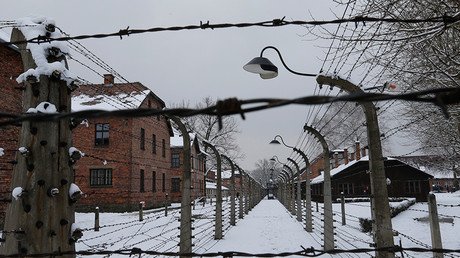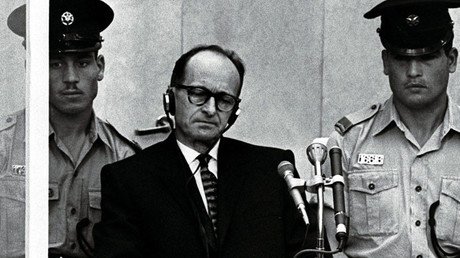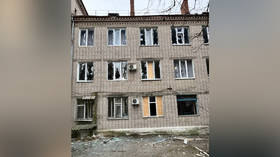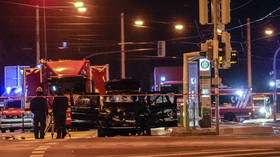Over 50% of W. Germany’s senior justice ministry officials in 1950-70s were ex-Nazis – govt report

The majority of West German Justice Ministry officials during the post-WWII period were former Nazis that had served in Adolf Hitler’s regime, a government study claims, adding that may be why so few Nazis were prosecuted for war crimes.
Between 1949 and 1973, 90 of the West German Justice Ministry’s 170 judges and lawyers were ex-members of the Nazi party, an official study presented by German Justice Minister Heiko Maas revealed.
Of those 90, at least 34 had been members of the SA, the original paramilitary wing of the Nazi Party. The SA played a significant role in Adolf Hitler’s rise to power and was responsible for the crimes committed during the 1938 Kristallnacht, also known as the Night of Broken Glass, when more than 90 Jews were killed.
Many of the judges had also been members of the Nazi special tribunals which operated outside the ordinary justice system and were used by the Nazis to carry out summary executions and to crack down on dissent, the former Justice Minister Sabine Leutheusser-Schnarrenberger, who commissioned the study while in office, told German radio station Deutschlandfunk.
“There was very large continuity,” said Sabine Leutheusser-Schnarrenberger.
The proportion of former Nazis among senior ministry officials in 1957 was even higher than during the 1933-45 period when the Third Reich was in power, the report stated.
“We didn’t expect the figure to be this high,” the study co-author Christoph Safferling told Sueddeutsche Zeitung.
The report also shed light on why so few Nazi criminals were found in post-war period – “Hitler’s people” in the Justice Ministry covered each other from police.
“The Nazi-era lawyers went on to cover up old injustice rather than to uncover it and thereby created new injustice,” said Maas.
“At a time when a fierce struggle was underway about punishing Nazi crimes, the old comrades were reluctant to come under the scrutiny of young, unencumbered outsiders,” said Safferling, explaining that ex-Nazi justice officials always explained that they worked for the Third Reich because they had no other choice and simply followed orders.
“You never find words of regret, only justifications,” he said.
READ MORE: Investigation finds dozens of suspected Auschwitz guards still alive in Germany
The report also suggests that ex-Nazi justice officials had an impact on the present day. Some were promoting racist ideas, such as discrimination against the Jews. For example, one employee who had been involved in the Nazis’ racial laws was later responsible for family law in West Germany.
“When you look today at how the use of the concept of ‘national’ is developing among the public, I believe it clearly shows how urgently important it is to show the facts of what happens when people refer to race or bloodlines as special, distinguishing features, marginalizing other people,” Leutheusser-Schnarrenberger said.
The post-WWII period was marked by a series of trials in Nuremberg held by the Allied forces that prosecuted the most prominent Nazis. The number of those convicted was relatively small – 6,650 people. Some of the war criminals received milder sentences because they proved that they had played minor roles in the Third Reich.
READ MORE: 89 yo Nazi war crime suspect dies in US custody before extradition to Germany
Until 2011, Germany underestimated the role of those who worked in so-called death and labor camps during the war. The case of John Demjanjuk – a Ukrainian who immigrated to the United States before being extradited to Germany to face charges – changed the legal situation of those who worked in death camps.
The judge presiding over his trial ruled that, while there was no clear evidence that Demjanjuk had personally killed anyone, his activities at the camp had facilitated murder. Demanjuk died in 2012 while appealing a five-year jail sentence for complicity in the murder of more than 28,000 Jews at the Sobibor death camp in Nazi-occupied Poland.














